The buzzing noise you hear when turning the key is caused by a weak electrical current. It is the starter relay that makes the clicking sound. The starter motor is energized by the relay when you turn the key.
Your battery is most likely very weak and does not have enough energy to crank the engine but does have enough power to close the relay field.
In other words, when the field closes, the relay closes the contacts for the starter, which attempts to crank the starter, which draws the battery so far down that the relay field opens, forcing the contacts of the starter to open.
This whole scenario repeats itself over and over very fast which then causes the buzzing noise. Nowadays there is enough power to make the field again in relay, which closes starter contacts again. I hope this helps.
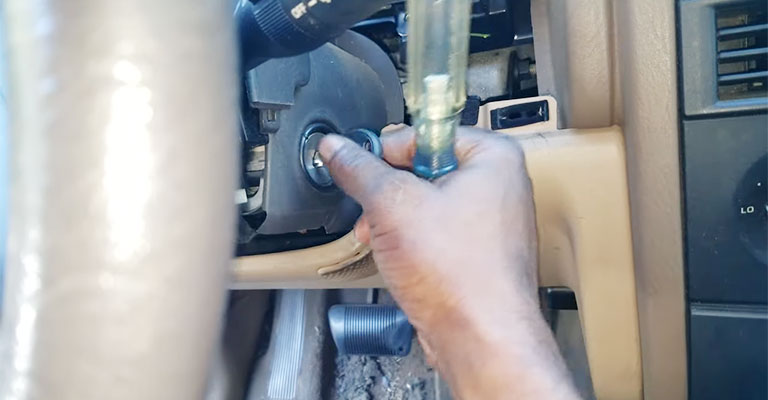
What Is The Meaning Of This Buzzing Sound?
The starter relay is usually what you hear. This is more than likely due to a weak battery. The battery can’t crank the engine, but the relay field can close because it has sufficient energy.
It works by closing the relay field and the starter contacts, thereby cranking the starter, and drawing the battery down until the relay field opens, which opens the starter contacts.
All the electrical current does is try unsuccessfully to engage the pinion gear and flywheel by activating the solenoid’s plunger. Low battery charge or corroded battery terminals often cause low current flow, which leads to this failure.
A relay can close starter contacts again if enough power is applied to the field. This process repeats itself over and over and over, causing the buzz. It is essential to ensure that the battery cables, terminals, and other connections are not corroded.
Why Is My Low Voltage Relay Buzzing?
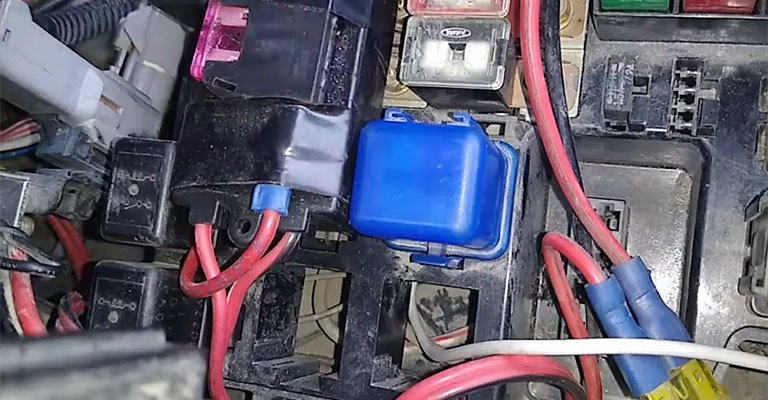
It’s usually a flat battery. Corrosion can also occur in the connection between the battery and the starter motor.
High resistance causes the voltage to drop as the solenoid engages, causing it to drop out, allowing the voltage to rise again, causing the solenoid to try to engage again. A loud, annoying buzz results from this happening multiple times in a second.
It connects the high current required to start the starter directly from the battery via a relay/starter solenoid when you press “Start.”
It is possible to engage the relay with a weak battery, but when the starter motor attempts to pull a high current to start the engine, the battery cannot handle the load, and the relay is released.
Due to the open relay, now that there is no current flowing through the starter, the relay can be engaged, and the entire cycle is repeated. Relays alternately close and open, causing a buzzing sound.
The design of mechanical buzzers is roughly like this. One of two reasons can cause your relay to buzz:
- Your relay is stuck because a lousy switch is connected to it.
- There may be a problem with your low-voltage relay. Either it is not operating in the ON or OFF position.
The coils in the relay should only be energized when the momentary switch makes contact, but when it sticks, they remain energized and buzz when the ignition is turned on.
Change the working switch connected to the buzzing relay with one from a different relay. Replacing the defective switch will stop the buzzing sound. You should replace your relay if it continues to buzz.
Is My Starter Motor Not Working?
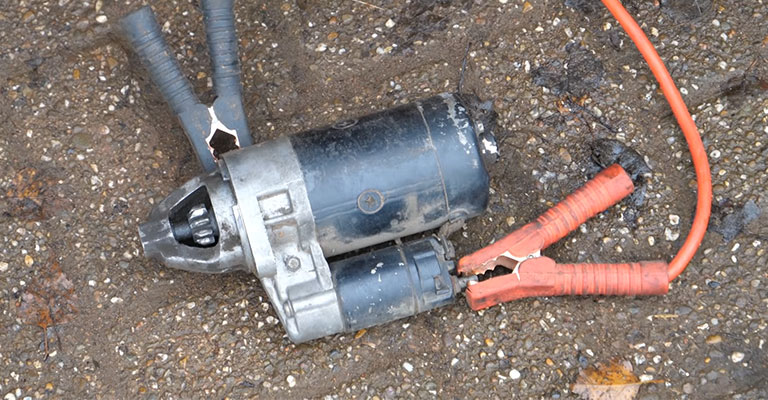
The engine cranking process in modern automotive vehicles is complicated and involves many parts working together.
Batteries, ignitions, and starter motors are among these parts. For example, the starter motor will likely need to be replaced in the near future if it experiences any of the following problems.
When a starter motor has been used for years or has traveled many miles, it is likely to fail. You should visit a local auto repair shop as soon as you notice any of the following symptoms, so you don’t end up with a stuck car.
Grinding Noise
One of two problems related to the starter motor may cause a grinding noise when you try to start your car. One possibility would be worn or missing teeth on the flywheel or pinion gear, preventing them from meshing properly to crank the engine.
There is also the possibility that the starter motor is mounted incorrectly. In this case, the starter could rattle around during starting, causing the grinding noise.
Swishing Sound
The starter motor’s pinion gear, which engages the flywheel, will create a whirring or swishing noise if it cannot engage with the flywheel but continues to rotate.
Starter motors spin on their own when they are turned on. There is a good chance that this problem will require the starter motor replacement.
Clicking Noise
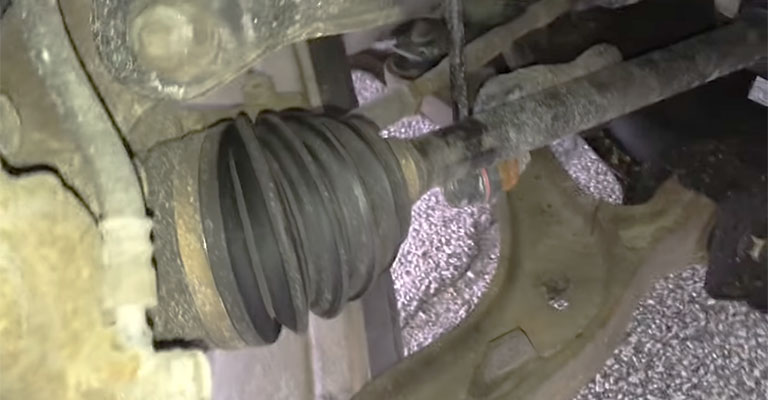
There is a high likelihood that your starter will make a repetitive or single, loud clicking noise as one of the first signs of trouble.
There is an actuation but no rotation of this starter motor. Solenoid failure is often the cause of this problem. Starting problems should be addressed as soon as they occur. You may find yourself stuck if you put off repairs until later.
Other Causes Of Buzzing Sound When Turning Key In Ignition
A car’s engine should crank when the key is turned in the ignition. This should be the case if your ignition and charging system are functioning correctly.
This may not happen at all times. However, diagnosing and repairing a problem is crucial if you hear a buzzing or grinding noise when you turn the key. The following are common causes:
Bendix Clutch Dust Contamination
When you recently replaced the clutch on your manual transmission car, and the Bendix gear on the starter became contaminated, it’s possible that dust from the old clutch contaminated the new gear.
As a result, when the starter engages, it makes a loud noise and is “dry” to operate. Fortunately, this temporary situation should resolve itself within a few days.
Bad Starter Drive Gear
Flywheel teeth grinding on the starter drive gear is perhaps the most common problem. A car can go through two or even three starters during its lifetime due to wear and tear on the drive gear.
You will need to replace the starter to crank the engine if this is the cause. These parts are referred to as starter pinion gears, or Bendix, although you might not be familiar with either term.
Dead Battery
In addition, dead batteries are another common problem here. Again, you should pay close attention to the noise. The battery is likely dead and should be replaced if you hear rapid clicks rather than metal-on-metal grinding.
Bad Starter Solenoid
We also see a lot of problems with faulty starter solenoids here. A starter solenoid will eventually fail due to high heat and heavy workloads, just like any other electrical component.
Depending on the level of wear to the pinion/drive gear, replacement of both the starter and solenoid may be necessary.
Final Words
A malfunctioning ignition system will prevent your engine from cranking, preventing your vehicle from moving. Battery problems are the most common, and regular maintenance is the best defense.
If you are unsure about what to do, I suggest you take it to a trusted mechanic. His diagnosis is unlikely to cost you anything. Unfortunately, some cars produce this buzzing sound very frequently.
Over the years, Hondas have been reported to have this buzzing sound problem. However, it never had a negative outcome. Don’t forget to turn the key to “start” so you don’t get a buzzing sound.

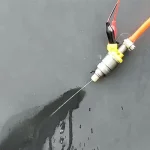
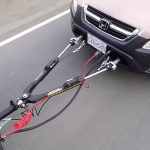


2012 Honda CR-V. When engine is cold and first turn key on a buzzing sound for a few seconds. Never does it again until cold. 95,000 Km does it mean trouble?
nope, you are right.